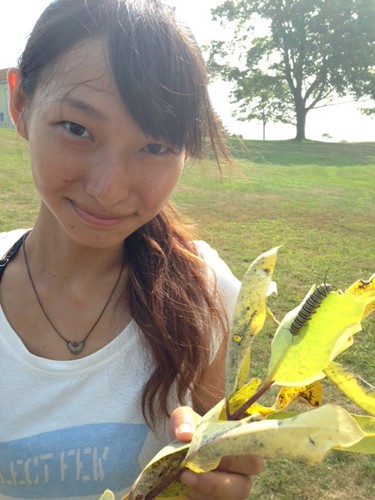The Wrack
The Wrack is the Wells Reserve blog, our collective logbook on the web.
The Wrack is the Wells Reserve blog, our collective logbook on the web.
The Reserve's annual late summer effort to save monarch eggs, caterpillars, and chrysalises from the mowers that cut our fields happened last week. The mowing is essential in preventing the fields from growing into forests over time, and also as a management strategy for invasive species.

Thanks so much to the eleven volunteers who spent several hours in the warm sunshine combing the ubiquitous milkweed plants for signs of monarchs! We saved 38 caterpillars of all sizes, removing them from the fields that will be mowed within the coming weeks to fields that will not be mowed this year. The smallest of the caterpillars measured less than one inch in length, whereas the largest were several inches long. A handful of monarch butterflies were spotted fluttering over the fields during the rescue mission, providing hope that some of the rescued caterpillars will also reach adulthood.
In recent years, monarch populations have suffered a sharp decline due to habitat (milkweed) loss, herbicide use, and extreme weather events. Below are the numbers of monarch eggs and caterpillars our Reserve crews have rescued over the past six years:
An interesting new find this year was the presence of large numbers of snails on the milkweed plants. Our rescue crew was left wondering if these snails could be having an impact on the monarch egg and caterpillar numbers. Could the snail slime be smothering the eggs or newly hatched tiny caterpillars? Are the snails eating too much of the milkweed and not leaving enough for the monarchs? The more time spent in Nature, the more wonders to discover… and the more questions that surface, begging to be answered!